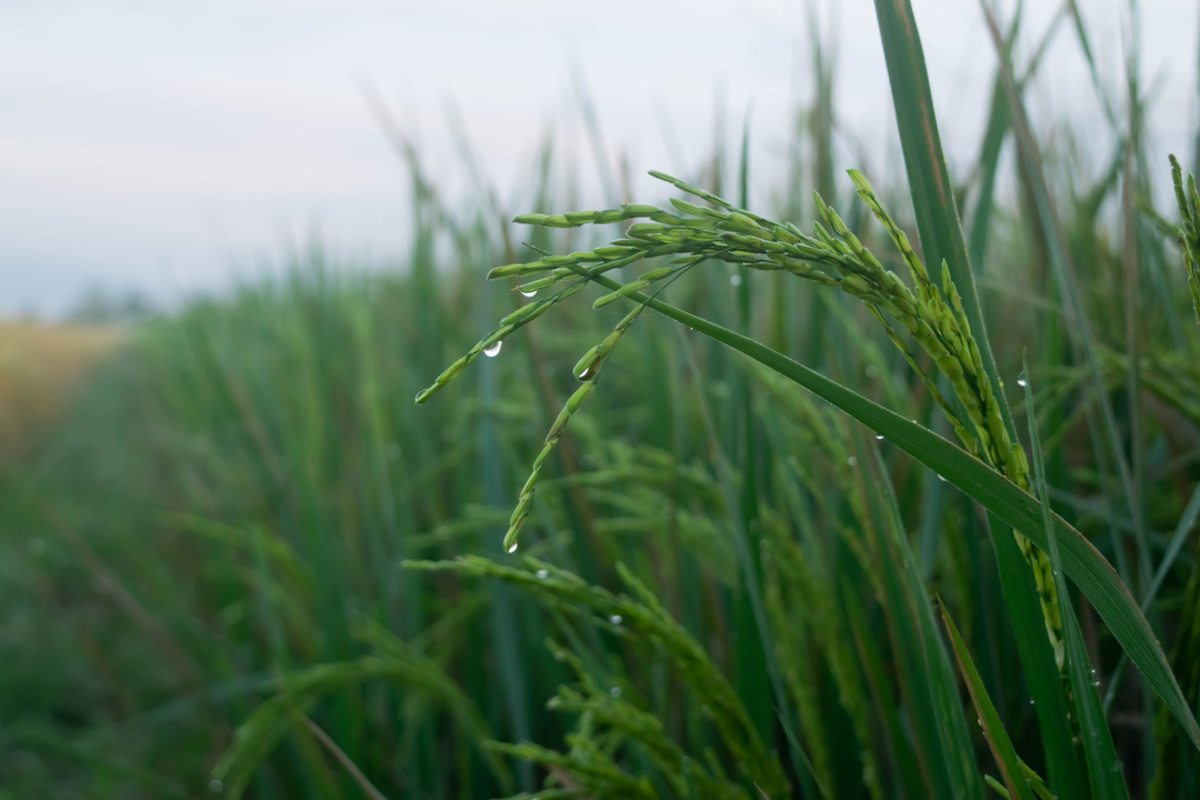
Researchers Report Methods to Regulate Rice Chilling Tolerance
March 27, 2024| |
A study published in Plant, Cell & Environment demonstrates the potential of breeding chilling-tolerant rice by editing the OsEIL2 gene in rice. Low temperatures can significantly affect rice growth and productivity. Thus, the study also explores the OsEIN2-OsEIL1/2 pathway in increasing rice tolerance to low temperatures.
The researchers observed that rice plants overexpressing OsEIN2, OsEIL1, and OsEIL2 showed severe stress symptoms under chilling conditions, including excessive accumulation of reactive oxygen species (ROS). On the other hand, OsEIN2 and OsEIL1 mutants and OsEIL2-RNA interference plants (OsEIL2-Ri) exhibited enhanced chilling tolerance.
Thus, the researchers investigated the OsEIN2-OsEIL1/2 pathway in regulating ROS levels and photosynthetic capacity under chilling conditions by modulating OsICE1 activity. The results of the study show that low levels of OsEIL1 and OsEIL2 expression might confer chilling tolerance on rice seedlings. Furthermore, the study also reports that the gene editing of the OsEIL2 resulted in enhanced chilling tolerance in rice.
For more information, read the article from Plant, Cell & Environment.
| |
You might also like:
- Researchers Target OsRBCS3 for Improving Rice Chilling Tolerance
- Gene Mechanism Affecting Rice Chill Tolerance Discovered
- BTI Scientists A Step Closer to Chilling Tolerant Corn
Biotech Updates is a weekly newsletter of ISAAA, a not-for-profit organization. It is distributed for free to over 22,000 subscribers worldwide to inform them about the key developments in biosciences, especially in biotechnology. Your support will help us in our mission to feed the world with knowledge. You can help by donating as little as $10.
-
See more articles:
-
Plant
- Researchers Report Methods to Regulate Rice Chilling Tolerance
- Scientists Enhance Diurnal Flower-Opening Time of Rice
- Genetically Engineered Clover Undergoing Trials in Australia
- USDA-APHIS Determines that Yield10 Bioscience's Omega-3 Camelina Varieties May Be Planted and Bred in the US
- Study Models Future Effects of Climate Change on US Corn and Soybean Yields, Production, and Exports
-
Animal
- Silkworms Engineered for Super Silk
-
Food
- Gene Editing of Edible Fungus Produces Healthier Foods
-
Environment
- Machine Learning Model Predicts Effect of Climate Change to Rice Yields
-
Read the latest: - Biotech Updates (February 11, 2026)
- Gene Editing Supplement (January 28, 2026)
- Gene Drive Supplement (February 22, 2023)
-
Subscribe to BU: - Share
- Tweet

